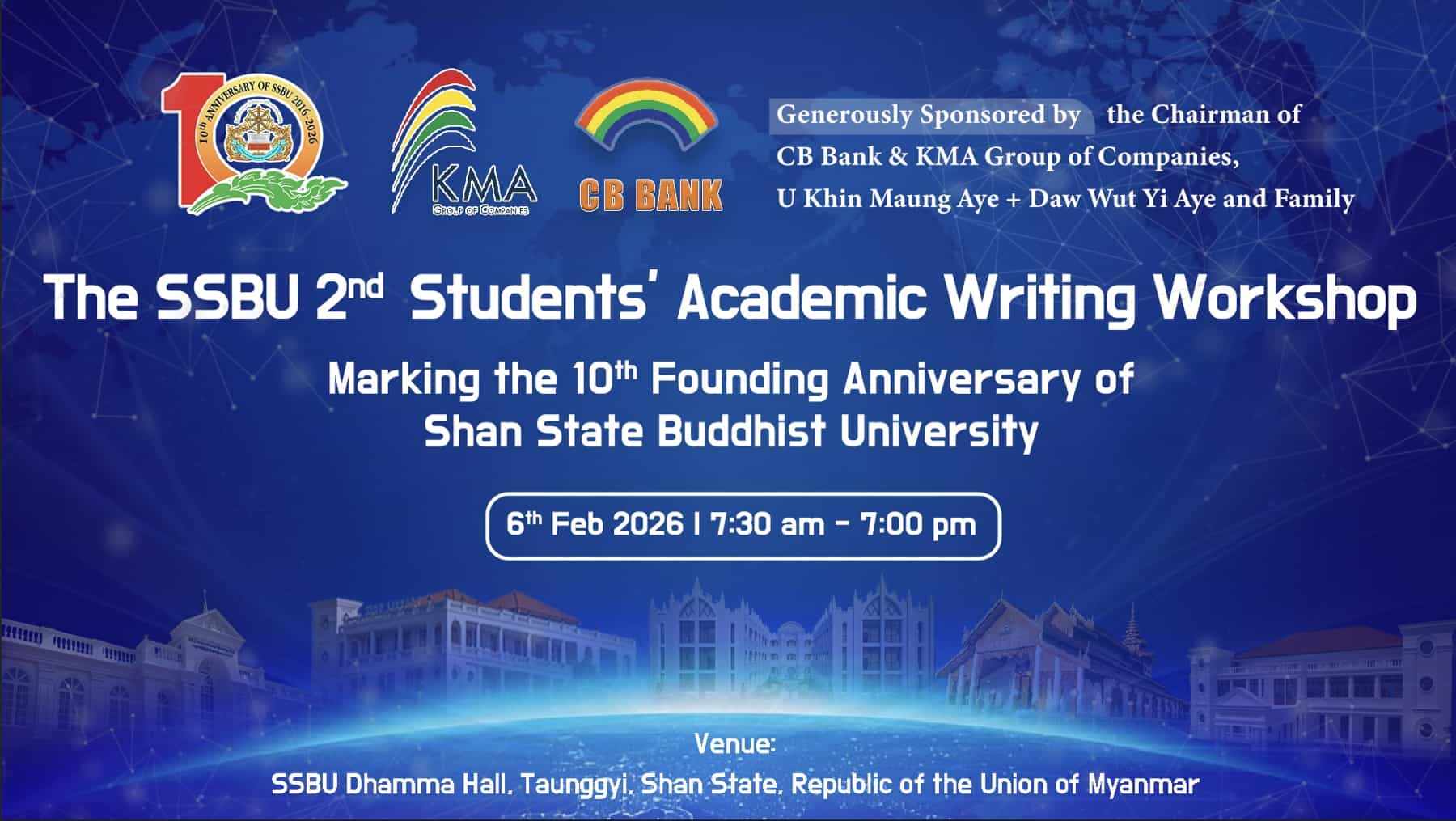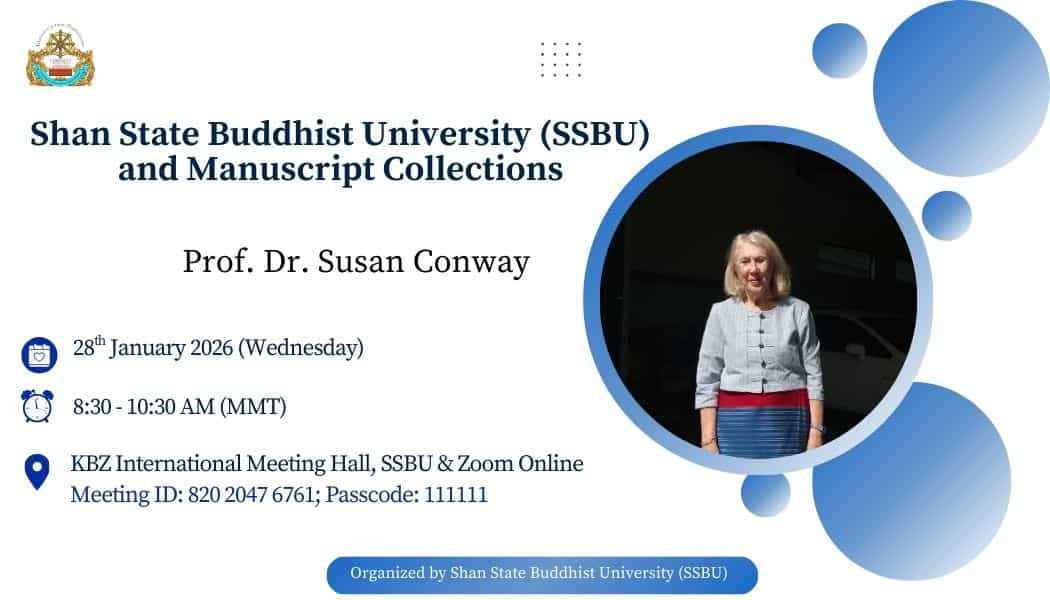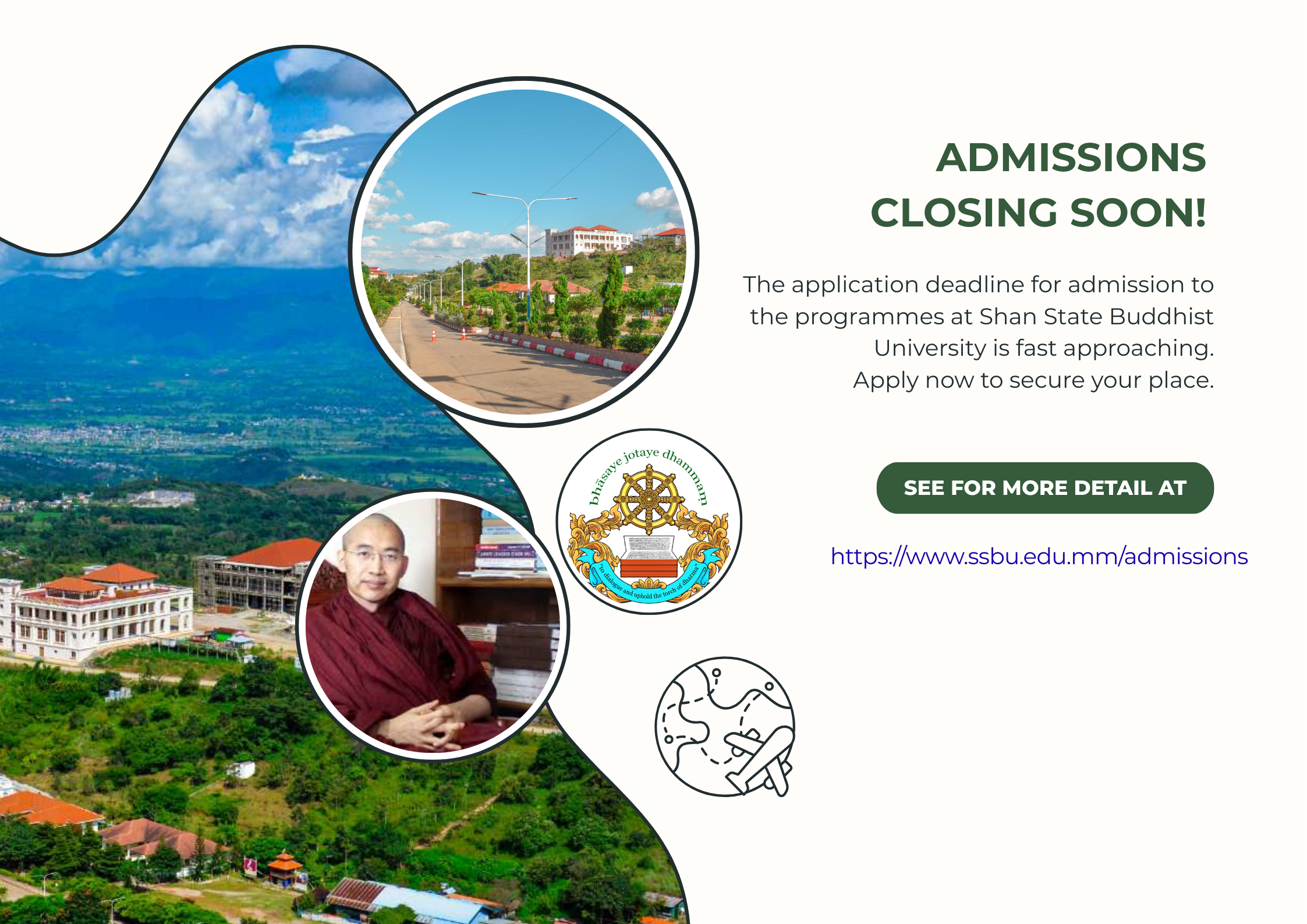An Introduction to Higher Education by Founder-Rector of SSBU
our university has the overall intention of bringing the best of traditional Buddhist studies in Buddhist countries mainly from Myanmar and also from other countries and also the best of western critical study together.
Vision and Aim
In accordance with the motto of the University, bhāsaye jotaye dhammaṃ (the Visākha-sutta, AN 4.48 and SN 21.7, and the Mahāsutasoma-jātaka (No. 537)), ‘to dialogue and uphold the torch of Dhamma’, our vision is to create a vibrant, liberal Theravada institution for future generations. Our vision is informed by the establishment of large teaching institutions in South Asia more than one and half millennium ago. The famous Nālandā institution (the 5th – 12th centuries CE), along with four other big institutions—Vikramashila, Somapura, Odantapuri and Jaggadala—played a key role in contributing to the development of rich, diverse Buddhist scholarship, and in spreading the Dhamma to other parts of Asia and possibly beyond. These Buddhist institutions, which are often characterised as the earliest universities, had close intellectual connections and working relationship among themselves; they reached their peak under the Pala Dynasty, i.e. the 8th-12th centuries CE.
Read More


